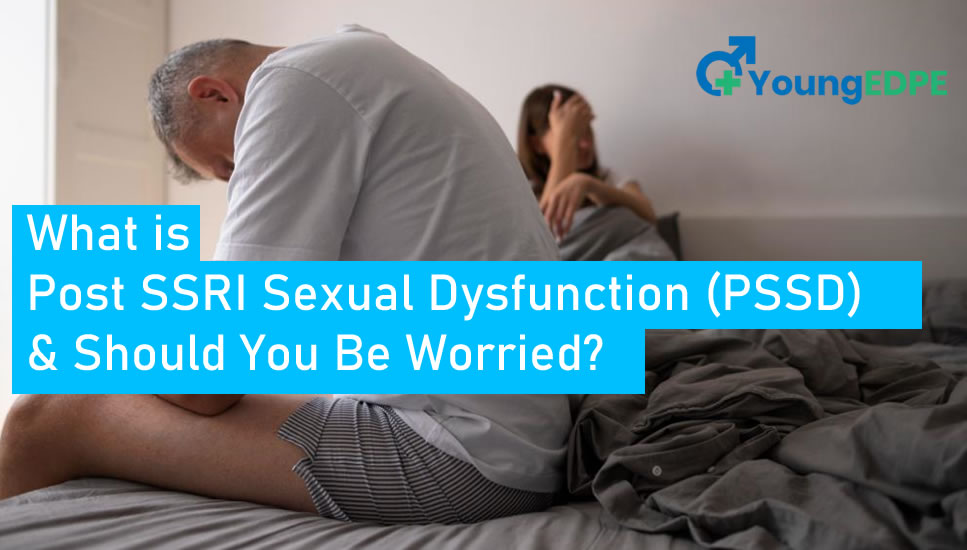
Taking SSRIs (Selective Serotonin Reuptake Inhibitors) for depression or anxiety can sometimes lead to sexual dysfunction. This condition is called Post SSRI Sexual Dysfunction (PSSD). The risk of PSSD is low but still notable—about 1 in 216 people who take SSRIs may end up with PSSD. In general, PSSD affects about 4.3 in every 100,000 people. [1]
So, in this article, we will discuss what PSSD is, symptoms, causes, how you can get diagnosed, what are the available treatment options, and the antidepressants least likely to cause ED. Let’s get started!
SSRIs (Selective Serotonin Reuptake Inhibitors) are common medicines for treating anxiety and depression. The role of these meds is to increase serotonin levels in the brain that are possible to control mood and sleep. Some of the common SSRIs a doctor may advise for you to use include Zoloft (sertraline), Prozac (fluoxetine), and Celexa (citalopram). [2]
In general, SSRIs are effective for treating depression, but sexual side effects are pretty common. About 25% to 73% of people taking SSRIs may experience sexual issues. [3] These effects can start as soon as 30 minutes after taking the medication.
It used to be thought these side effects would go away once you stopped taking the meds, but research now suggests they can stick around even after stopping the medication.
Certain SSRIs can have sexual side effects, including erectile dysfunction (ED). Here’s how some common SSRIs stack up in terms of ED risk:
PSSD stands for Post SSRI Sexual Dysfunction. It’s a condition some people experience after stopping antidepressant medication like SSRIs. [4] Even though SSRIs can cause sexual side effects during treatment, PSSD is when those issues linger after stopping the meds. In June 2019, the European Medicines Agency officially recognized PSSD as a potential long-term sexual issue after stopping SSRIs. [5]
The exact number of people with PSSD isn’t known because there’s not a lot of research on it yet. Diagnosis can be tough, which adds to the lack of data. Some experts say that around 10% of people of sexually active age in developed countries use antidepressants long-term. This means nearly 20% of the population might struggle with sexual dysfunction. [6]
Different kinds of sexual issues can come up with PSSD. These might include:
PSSD can cause a variety of sexual issues. [8] Common symptoms include:
Post-SSRI Sexual Dysfunction (PSSD) can happen after taking certain medications like SSRIs. Experts do not fully know why this happens, but it probably results from alterations in the brain and body chemistry. Medications may interfere with the balance of functioning between the two neurotransmitters and receptors affecting sexual function.
Here’s a look at what the experts think might be in play:
PSSD may affect any person because sexual dysfunction can affect people from all walks of life. It is not related to factors such as sex, age, or ethnicity that could have an impact on the quality of life, self-esteem, or relationships, for example.
People who have some tendencies towards depression and anxiety are the ones at higher risk. 30 to 50% of people who have some pre-existing sexual dysfunction can get worsened by antidepressants; moreover, pain, sensitivity, or a trauma problem can cause this risk.
PSSD has impacts both mentally and emotionally. It can cause frustration and embarrassment, and may take away the self-esteem of a person. Relationships are also greatly affected if sexual issues are not addressed. Each time you spot those challenges, your mood may drop, or you may even experience some fears, and it will then become harder for you to keep up with optimistic thoughts about yourself and the future.
Yes, PSSD is something one should have in mind. PSSD is not a common condition but can occur; the sex-related problems caused by SSRIs can aggravate if they have been bothering you previously. Keep an eye on any sexual changes when starting or stopping SSRIs.
If you experience any of these, be sure to contact your doctor. He or she can help you weigh the good with the bad in your medication and give you alternative therapies if necessary. Do not get alarmed but do stay informed and take an active role in your health.
Some antidepressants can treat depression while avoiding erectile dysfunction. [9] Here’s a look at a few options:
Diagnosing PSSD involves ruling out other causes of sexual issues. Clinicians need to recognize signs like genital numbness that set PSSD apart from other sexual problems. [13]
Treating it is challenging, and there’s no guaranteed solution yet. Doctors may try medications like serotonergic antagonists or dopaminergic agonists. Low-power laser therapy and phototherapy show potential, but they’re not guaranteed fixes.
The duration of PSSD varies. [14] Some studies found SSRI-related sexual dysfunction lasted up to 6 months after stopping the drug. Other case studies showed that PSSD could last for years without any improvement. [15]
For those experiencing premature ejaculation, Dapoxetine (Priligy) is a selective serotonin reuptake inhibitor designed to treat that specific issue.
SSRIs treat depression and other mental health issues but often cause sexual side effects like erectile dysfunction and low libido. Sometimes, these effects are even persistent after the discontinuation of medicines, which is called PSSD. Talk with your doctor about which antidepressant may be the best one for you with the fewest sexual side effects.
If you notice sexual side effects, talk to your doctor about regulating your dose or trying different meds.

Premature ejaculation and erectile dysfunction are usually deemed as sexual disorders which men develop in old age; however, recent surveys have found that younger people are equally susceptible or even more prone to develop such issues. Let’s find out what are the causative factors that have resulted in such a high preponderance of these sexual […]

Premature ejaculation- one of the worst bedroom blues where you desperately chase satisfaction but end up in frustration, depression, and embarrassment. It leaves you breathless but nowhere near the finish line. The question lingers in your mind, “Why can’t I just…?” Well, no need to worry. There are various treatment options for premature ejaculation, and […]
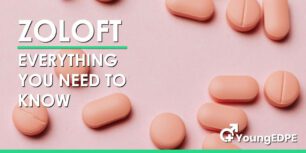
One popular treatment medicine to combat Premature Ejaculation is Sertraline (Zoloft®). It is an antidepressant that has shown its potential in treating PE. A clinical trial published in the International Journal of Impotence Research included 46 potent men diagnosed with premature ejaculation. They were given Sertraline from 25mg to 100mg per day. They experienced an […]
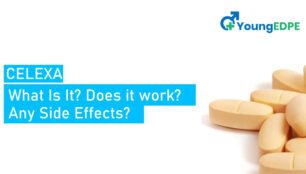
Did you know premature ejaculation is the most common sexual disorder among males affecting upto 30-40% of the male population worldwide (1)? Men usually tend to hide their sexual problems because of societal pressure and the stigma related to sexual dysfunction. As a result they may turn to unhealthy coping mechanisms like smoking or drinking. […]
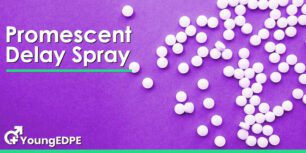
When seeking to gain more control over your ejaculation, you may have come across many different products claiming to help. But knowing where to start as someone looking for a reliable solution can be difficult. One product that is growing in popularity is Promescent Delay Spray, formulated with special ingredients designed to create longer-lasting pleasure […]
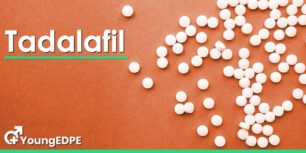
Usage, Dosage, Side Effects And Overall Review When it comes to overcoming erectile dysfunction (ED) and achieving a thriving sex life, tadalafil has emerged as a game-changer. With its long-lasting effects and flexibility, this medication has brought hope and renewed confidence to individuals and couples worldwide. In this comprehensive guide, we will explore the ins […]